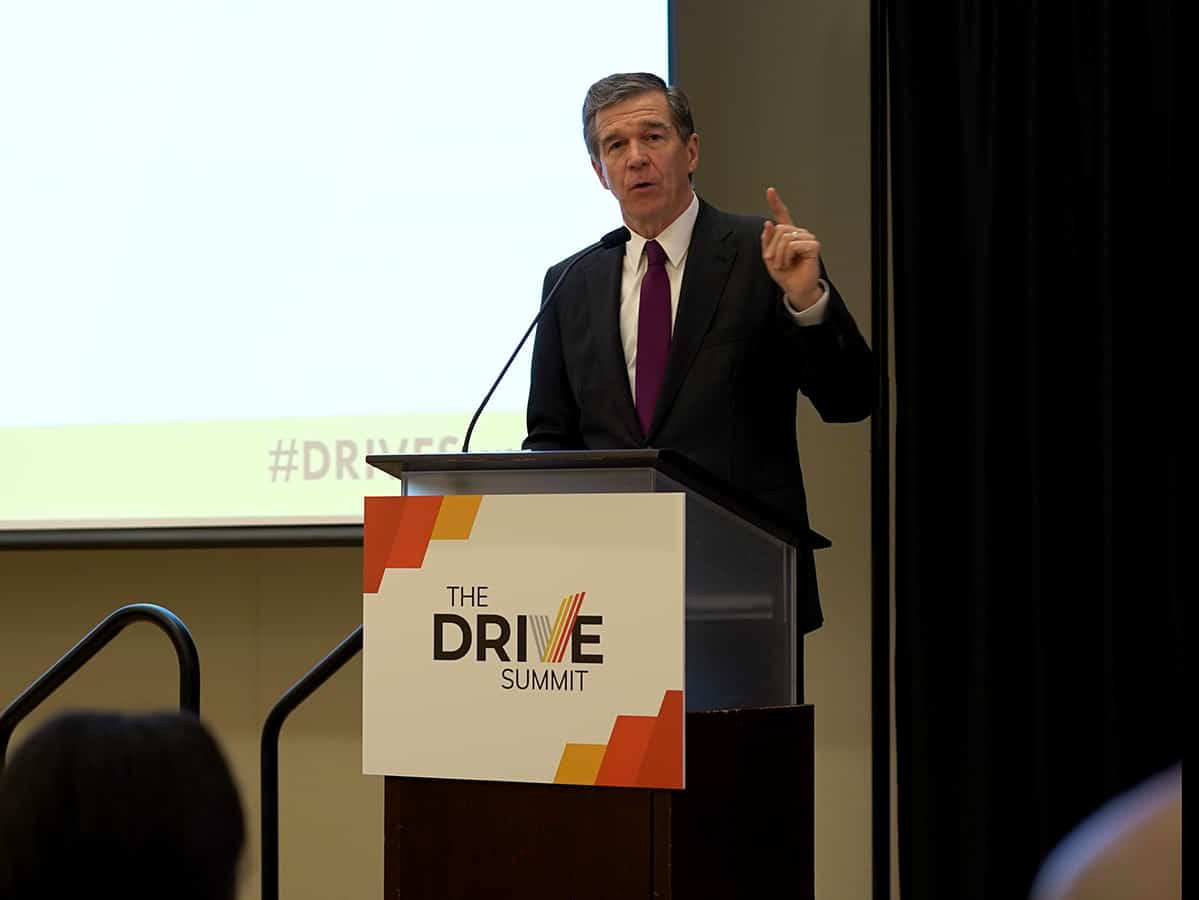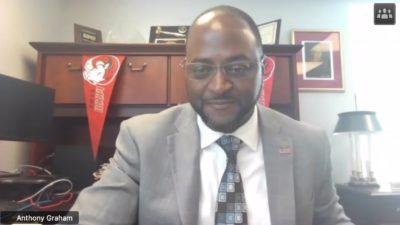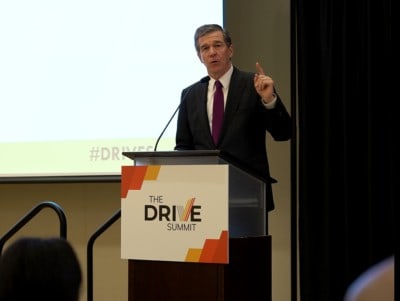
In hindsight, perhaps we should have foreseen that a passionate group of people, convened to make recommendations for diversifying the teacher workforce, would not be ready to disband after doing that.
That’s the case with the DRIVE Task Force, which was created nearly two years ago under an executive order by Gov. Roy Cooper that is set to expire Dec. 31. Its charge was to assess and provide recommendations for recruiting, preparing, and retaining more teachers of color.
It met that directive by publishing its report at the beginning of this year. Now it wants to keep going.
The task force met Monday to provide an update on its community engagement and action-planning work. But with its days numbered, chair Anthony Graham opened the meeting with another plea for a two-year extension, to allow the group to build more awareness around its 10 recommendations, create policy alignment, and – really – stay intact until the state implements its proposals.
“I believe we can all agree that our work is not done until we see that our educator workforce reflects the diversity of the student population in North Carolina’s public schools,” said Graham, provost at Winston-Salem State University.
“Quite honestly, it is unfortunate that such a task force is necessary,” Graham added. “It is unfortunate that we must put into place mechanisms that advocate for equity in our K-12 education system. At some point, it is my hope that such a mechanism is no longer necessary. It is my desire that we will not only profess that equity is an imperative, but also that our actions, by design, will demonstrate our collective belief that equity is a necessity for all students to have access to a sound, basic, quality education.”
Here’s what the work looks like now
Cooper told task force members in a recorded statement that it was “a huge accomplishment” that the Leandro plan and parts of the state’s budget incorporated some of its work.
But incremental progress has not satisfied the task force. It has broken into two subcommittees – one to engage the community and another to do action planning. On Monday, each subcommittee provided updates on its efforts to push the collective closer to its goal of state implementation.
The community engagement subcommittee is planning a DRIVE Summit for late March or early April. Along with the Teaching in Color event hosted by the Center for Racial Equity in Education at the end of April, it sets up the coming spring for a monthlong focus on attaining and celebrating teacher diversity.
Subcommittee members are talking to three historically black colleges and universities as it considers a venue for the summit. The subcommittee expects to finalize a date and location this month and has a working draft of an agenda.
The goals of the summit are to build buy-in for the task force recommendations, build community with stakeholders, and identify promising practices throughout the state. The subcommittee hopes the summit will be a day to discuss both policy and practice.
“We started out thinking we wanted a very narrow audience, thinking about depth instead of breadth,” said subcommittee co-chair Leslie Locklear. “But we have kind of skewed away from that just a little bit, knowing that we can still give depth and still have breadth in a very specific type of way because we don’t want to leave out that policy aspect — but we also want to make sure we’re catering to the needs of K through 12 educators [and] higher education.”
Breaking recommendations into action steps
The other subcommittee, on action planning, is building structure around two major components: articulating the 46 strategies that correspond to the 10 recommendations as actionable steps; and building out a timeline that projects the cost of those steps. The subcommittee is finishing its work on the first component now.
“It’s a complex task to take the depth and breadth of the DRIVE Task Force recommendations and try to translate that into an actionable structure where we can see the broad range of the recommendations and the strategies implemented,” subcommittee co-chair Van Dempsey said.
Sign up for the EdDaily to start each weekday with the top education news.
This subcommittee is also looking at other initiatives, such as the Leandro Plan and the State Board of Education’s strategic plan, and mapping its recommendations and strategies against those to show overlap and identify areas of common objectives. State Board Director Deanna Townsend-Smith, who also serves on the DRIVE Task Force, created a similar document to show harmony between the Leandro plan and the state board’s strategic plan.
The work ahead extends beyond the scope of Cooper’s initial executive order, but it’s a moral and pragmatic imperative, task force members said. Dayson Pasión, the governor’s teacher advisor, said conversations are happening at the governor’s office to determine what a new executive order would look like.
So long as the challenge persists, ‘I will be here’
In the meantime, Graham expressed his commitment to seeing the process through – whether an extension occurs or the task force’s work continues through some other mechanism or entity.
“I have no intention of stepping away from this work,” he said. “As long as we must file court cases and litigation to appeal for funding to ensure that young boys and girls across the state receive the resources they need to have access to a sound, basic education, then I will be here.
“As long as we have to explain to people why educational equity is necessary or we have to find ways to increase the number of Black and Brown classroom teachers, school counselors, school principals, and school superintendents to more accurately reflect the student demography whom we serve, then I will be here. As long as we have Black and Brown teachers who leave the classroom at an alarmingly high rate for reasons connected to racial microaggressions, then I will be here. And it is my hope that this task force, or an entity very similar to this one, will be here as well.”
Recommended reading



